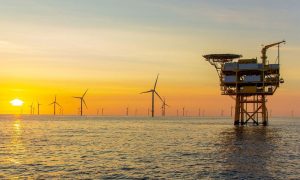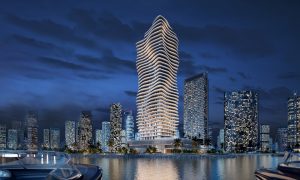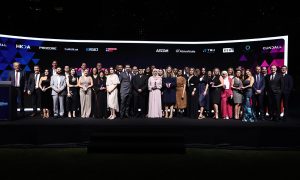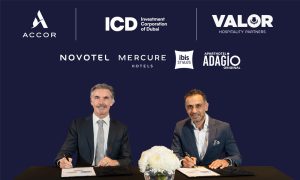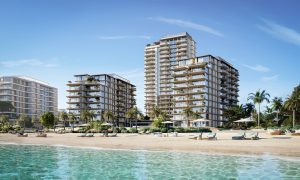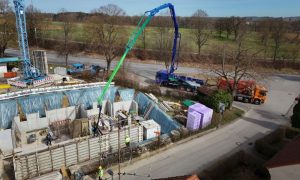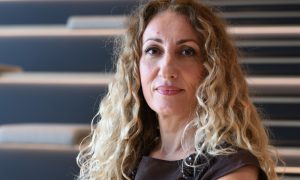Local Becomes World-Class
When Bainona Engineering Consultancy won the title Structural Engineering Company of the Year at the 2021 MEC Awards, it hallmarked the company’s transition from regional player to a business epitomising international best practice
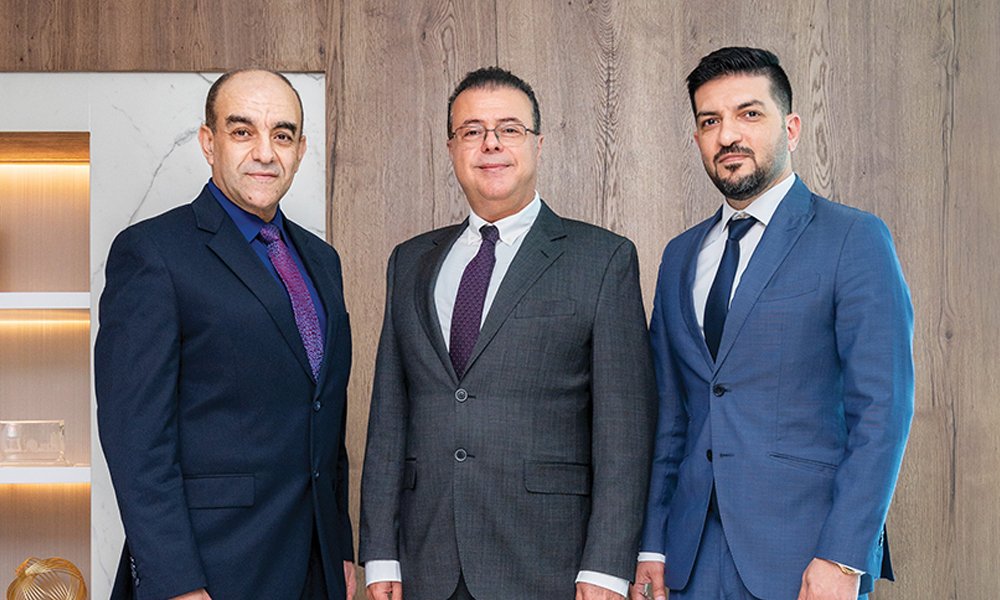
To understand a business well-known for its government liaisons and signature public and private sector projects, Paul Godfrey spoke to Bainona Engineering Consultancy (BEC)’s top management team, comprising CEO and managing director, Eng. Raed Ahmed Al Fakhouri; technical director, Dr. Eng. Khaled Mahmoud Ahmed; design director, Eng. Qusai Ghassan Awad; and contracts manager, Ahmed Al Fakhouri.
First things first. How would you describe the company’s role in terms of helping develop the future vision of the UAE, given that Bainona is responsible for such a rich cluster of government and public sector developments? Qusai Ghassan Awad replies that, “The way we see ourselves aligning here is that we are constantly seeking out particular developments that, in our mind, serve a key purpose for the future of this country. So, for example, in Abu Dhabi’s declared vision, there is a clear focus on three verticals in particular, namely: logistics, agriculture and manufacturing – and the government gives each of these a special emphasis. From our point of view, it makes sense to look at project openings in these sectors, where we know there will be strong activity.”
“To cite a prime example, for logistics, we have been working particularly with KIZAD, the integrated trade, logistical and industrial hub, where some of the most progressive logistics pioneers are located. Meanwhile, in the area of agriculture, we have worked with Madar Farms, one of the leading Dubai agricultural companies and the world’s first commercial-scale, vertical, indoor tomato farm that uses only LED lights for all its crop growth. We want to be very much at the cutting-edge of that kind of AgriTech,” he explains.
“Plus, I should also say that not only do we work on these projects, but we then play a role in pro-actively promoting them in any way we can. So, if we see similar briefs or competitive tenders out in the market, we make sure to mention that ‘this can be done, because we’ve already delivered something very similar’ – in other words, we always aim to motivate other like-minded businesses.”
Technical director, Dr. Eng. Khaled Mahmoud Ahmed adds, “We’re very used to working with these advanced projects, which are often fully bespoke and one-of-a-kind. Take for example, the Al Ain Space Research Centre, which as everyone knows, plays the role of an incubator of research, innovation, and development in space sciences. It raises the bar very high in terms of both concept and delivery. I’m delighted to say we did the concept approval within three months! Through-out, we worked very closely with the commissioning authorities, who fully supported us because it was the first time they had liaised with anyone on a project of this kind.”
He continues, “Needless to say, this style of work means precisely following all the relevant international building codes, which are critical in terms of securing an effective delivery. Here, we were really put to the test, because after we completed the project, the client decided to bring in a third party to check if we had delivered what we promised. They called in no less a name than Airbus, famous for being a global business that sets many of the standards by which aviation and space technology are benchmarked. However, Airbus were astonished that we were on-time and could deliver with this high quality!”
Innovation as a Market-Maker
Is it the case that, given the credentials of working on these highly progressive projects, BEC sees itself as an innovator? Is this one of the factors that have enabled the company to align so well with a variety of government departments over the years?
Dr. Eng. Khaled Mahmoud Ahmed responds, “Yes, it is, and our commitment to new ways of working and to exploring new approaches has been instrumental in our opening up completely new markets. For example, we saw a long time ago that in Abu Dhabi, there was very much an established way of doing things when it came to creating new developments: you simply demolished the old buildings and built new ones. But we saw this was very wasteful and couldn’t go on. So we decided to focus on how to repurpose buildings. Today, we have become one of the region’s leading specialists in doing this. To re-plan and blueprint, we use the full range of new reality capture technology – external and internal scanning, BIM, and so on. We create a 3D model and can redesign the building in a way that will be more cost-effective, saves power and contributes to far better sustainability. This has enabled us to work with new clients who often don’t know how to work with the assets they have.”
“Plus, this also opened a door to the government – reviewing existing buildings such as schools, mosques, municipal buildings, etc. – and as a result, we are the No.1 consultant doing this kind of job.”
Changing Standards and International Benchmarks
Qusai Ghassan Awad argues that, at the same time, there has been a big change in the guidelines and the best practice standards that businesses are required to work to. “For example, at first, Abu Dhabi decided to follow international guidelines, but then created their own regional codes. The idea is that Abu Dhabi then sets the international best practice standards: no longer following trends, but leading the way.”
He says, “It’s also because we never compromise towards supporting these ideals that we work effectively with government. We constantly keep in mind two factors: quality and timing. With the first – quality – we go to great lengths to manage everything we do directly and keep all the main tasks in-house. We never outsource the key parts of our business (MEP, surveyors, QS’s, interior designers, etc.) so we can manage every step in-house. The government, for example, will always looks for someone who takes full responsibility for what they do, so this is a major competitive advantage for us.”
“I should also add”, says Dr. Eng. Khaled Mahmoud Ahmed, “That because we have high quality and high standards – and we finish on time – we don’t face claims from the client. We bring expert supervision teams to all our projects and avoid the potential damage of last-minute claims which can seriously hold up any project’s completion. This kind of factor is noted by the government. In fact, overall, there is a strong sense of mutual respect in the way we work with government.”
Life since the Pandemic?
It’s very much an ongoing debate within the design, contractor and engineering communities whether or not the pandemic has actually impacted the style and function of what clients are asking for: has it actually resulted in space being plotted any differently when a project is first blue-printed?
CEO and managing director, Eng. Raed Ahmed Al Fakhouri explains, “There is still no clear regulation to change the design element. Rather, the approach now is to create temporary buildings to cover the short-term needs. The authorities haven’t given us any fresh direction to change the design of airports, mosques, and so on. However, there are some changes that we ourselves have pushed through, which reflect new, intelligent styles of behaviour: one example that I like to give is that when we design elevators, and think about the elevator lobby, there are no longer any push button controls. We’re designing for a new world where these things can’t be taken for granted any more.”
When it comes to other key trends, is there a trending regional style here in the UAE? Contracts manager, Ahmed Al Fakhouri believes, “This is a country for all people, so there isn’t so much of an emphasis on regional design styles or values. However, there are some projects where they will keep a traditional style and combine it with a ‘modern touch’. Broadly speaking, it used to be the case that everyone followed American or European designs. But now, it’s seen that the UAE leads the world, so there is more of an international focus on what ‘we’ are doing. For example, we’re setting the pace when it comes to renewable energy and how to ensure the durability of components that have to endure a very harsh climate.”
Bainona’s Next Chapter
“The next chapter for the company is the greater use of technology,” says Dr. Khaled. “New technologies and new software which can save tons of time (a classic example is that you can save two or three days’ drawing time on even a small project, if not weeks). Technology also drives data – it’s the ‘sleeping giant’ for any business, because it shows you what you are doing well, and where there are still improvements that can be made.”
“I also want to mention that our aspirations to grow, improve and set very high standards were rewarded recently when we won the Middle East Consultant Award for Structural Engineering Company of the Year. We competed with a cluster of global businesses, and we were the only local business to be considered for this award. I feel that one of the reasons we won is that, in our nomination, we presented a varied spectrum of work – from high-rise buildings, medical facilities, marine developments, industrial constructions to agriculture – and even the big-name firms don’t work across such a broad area. The various client references also demonstrated the extent of our work and this was all recognised by the judges. We are immensely proud of this award because I believe it not only heralds what we have done and where we are headed, but to a large extent, indicates how the sector is changing rapidly.”
This interview originally appeared in the April 2022 issue of Middle East Consultant.


